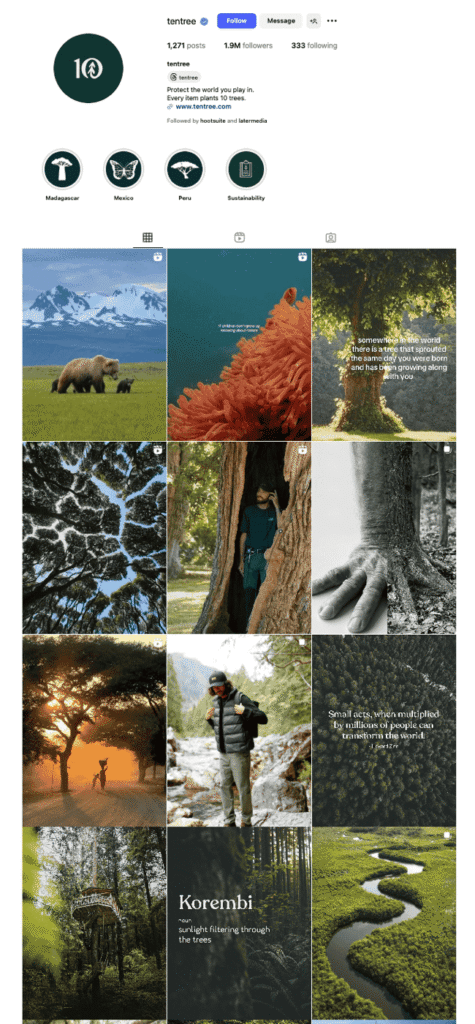If you think marketing to Gen Z is just about TikTok trends and flashy visuals, think again. This generation, born roughly between 1998 and 2012, is rewriting the rules of consumer behavior. They value authenticity, sustainability, and social impact more than flashy campaigns or celebrity endorsements. For brands, understanding these priorities isn’t optional — it’s the difference between making the sale and losing relevance.
In this blog we dive into why authenticity and sustainability matter to Gen Z, what it looks like in action, and how companies can adapt their marketing strategies to capture this influential audience.
Why Gen Z Cares About Authenticity

Gen Z has grown up with social media, memes, and influencer culture. They’ve seen brands over-promise, influencers mislead, and viral trends fizzle. As a result, they’re skeptical of traditional advertising. A survey by Morning Consult found that 83% of Gen Z shoppers prefer brands that share their values. They want brands to be real, not polished perfection. Showing human flaws, behind-the-scenes moments, and genuine storytelling resonates more than curated perfection
Dr. Squatch: The men’s natural soap and personal care brand uses humor and candid storytelling on TikTok and Instagram to highlight its products. Real user reviews, funny skits, and behind-the-scenes content make the brand feel authentic to younger audiences.
Tentree: This sustainable apparel brand highlights its environmental commitments in a relatable way. For instance, their Instagram shares photos of trees planted per purchase, behind-the-scenes looks at eco-friendly production, and real-life stories of community projects.
Aesop Skincare: Known for minimalist design and thoughtful storytelling, Aesop often showcases its boutique experiences, founder philosophies, and sustainable sourcing practices on Instagram. This transparency appeals to Gen Z’s preference for authentic and meaningful brand narratives.
Sustainability Isn’t a Buzzword — It’s a Dealbreaker
Gen Z isn’t just window-shopping for eco-friendly labels — they actively research brands’ environmental practices. From packaging to labor practices, every touchpoint matters. According to IBM’s “Meet the 2022 Consumers” study, nearly 70% of Gen Z consumers are willing to pay more for sustainable products.
They use social media as a research tool: Instagram reels, TikTok explainers, and YouTube reviews are often the first stop before purchasing.

Stasher: The reusable silicone bag brand showcases eco-friendly living on Instagram and TikTok, using short videos to demonstrate product benefits and highlight sustainability tips.
Thrive Market: This online grocery platform posts content about ethical sourcing, zero-waste packaging, and how customers can shop sustainably. Their social campaigns educate and inspire, building loyalty from environmentally conscious Gen Zers.
Blueland: Makers of eco-friendly cleaning products, Blueland shares “refill not landfill” campaigns on social platforms, showing their cleaning tablets in action and highlighting the waste reduction impact, appealing directly to eco-minded Gen Z shoppers.
The Intersection of Authenticity and Sustainability
The magic happens when authenticity and sustainability work together. Gen Z isn’t just looking for a green product — they want brands that walk the talk. This means:
- Showing transparency in sourcing and production.
- Sharing both successes and challenges in sustainability efforts.
- Letting employees and customers tell their stories, not just corporate marketing teams.
Tentree not only plants trees but also shares ongoing impact metrics and challenges in scaling sustainability efforts and Stasher creates TikTok content showing both the benefits and the production process of reusable silicone bags, combining authenticity and environmental impact in a relatable way.
Marketing Strategies to Win Gen Z
When marketing to Gen Z around authenticity and sustainability, success metrics should go beyond likes and impressions:
- Engagement on user-generated content (shares, comments, saves)
- Conversion from educational campaigns (how many viewers take action)
- Community growth (followers who align with your values)
- Repeat purchase rate from sustainability-focused products
Here’s how brands can translate authenticity and sustainability into actionable marketing strategies:
1. Leverage User-Generated Content (UGC)
Encourage customers to share experiences, reviews, and photos. Authentic content from real users often outperforms polished campaigns.
- Platforms: Instagram, TikTok, and YouTube Shorts are ideal for UGC.
- Tip: Repost UGC on brand accounts and tag the creators — it builds community and trust.
2. Show the Human Side
Gen Z values behind-the-scenes glimpses. This could be:
- Founder stories
- Employee highlights
- Day-to-day operations
- Challenges in sustainability efforts
Even admitting missteps can boost credibility, as long as the brand demonstrates a commitment to improvement.
3. Be Transparent About Sustainability
- Post about sourcing, materials, and supply chain practices.
- Share metrics, certifications, or audits if possible.
- Engage followers in initiatives like tree planting, recycling, or charitable projects.
Avoid vague statements like “we care about the environment.” Gen Z can spot greenwashing immediately.
4. Collaborate with Like-Minded Creators
Influencers and creators who genuinely align with your brand values can amplify authenticity. Micro-influencers (10K–50K followers) often have higher engagement rates than mega-celebrities, especially with Gen Z.
- Example: A sustainable snack brand might partner with TikTok creators who showcase zero-waste cooking or plant-based lifestyles.
5. Make Social Commerce Seamless
Gen Z expects discovery and purchase in one seamless experience. Features like Instagram Shops, TikTok Shopping, and YouTube product tags reduce friction and allow them to act immediately on sustainable and authentic campaigns.
6. Educate While Entertaining
Gen Z loves edutainment — content that is informative but fun. Think:
- TikTok explainers on sustainability issues
- Instagram reels showing a product’s environmental impact
- Interactive polls about ethical choices
These campaigns drive engagement while reinforcing brand values.
(If you’re enjoying this article, you might like to subscribe to our bi-weekly email newsletter AMPlify. We share new blog articles, videos, and valuable ideas on AI, Marketing and Performance insights to grow your business. We assure you that we will never spam you, sell annoying courses or packages, or bug you with anything non-useful.
Authenticity + Sustainability = Gen Z Loyalty
For brands, the lesson is clear: Gen Z doesn’t just buy products — they buy values. Authentic storytelling combined with genuine sustainable practices is the formula for lasting engagement and loyalty.
It’s no longer enough to market with polished visuals or catchy slogans. To win Gen Z, brands must be real, transparent, and committed to doing good.
- Share real stories, including challenges.
- Commit to measurable sustainability practices.
- Partner with creators who genuinely reflect your values.
- Make discovery and purchase seamless on social platforms.
Brands that master these principles don’t just win sales — they earn trust, loyalty, and advocacy from a generation that holds buying power and influence like no other.




